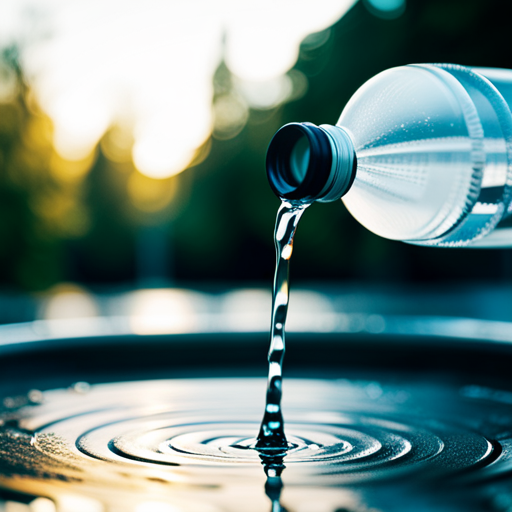Are you concerned about the Total Dissolved Solids (TDS) levels in your drinking water? With all the conflicting information out there, it can be tough to know what to believe. Some say that high TDS levels are perfectly safe, while others argue that low levels are best for health.
In this article, we’ll explore the pros and cons of TDS in drinking water, so you can make an informed decision about what’s right for you. First, let’s define TDS. Essentially, TDS measures the minerals and metals that are dissolved in water. These can include everything from calcium and magnesium to lead and arsenic, depending on the water source and treatment.
Some people believe that high TDS levels can affect the taste of water and cause scaling in appliances, while others worry about the potential health effects. But what’s the truth? Let’s take a closer look.
Key Takeaways
– TDS levels in drinking water can have an impact on taste, scaling in appliances, and potentially on health.
– High TDS levels can lead to unpleasant taste, scaling, and also affect plant growth and lifespan of aquarium fish.
– Low TDS water can have health benefits, reducing the risk of certain health conditions, while high TDS levels have been associated with increased risk of kidney stones and cardiovascular disease.
– Choosing a water filtration system that effectively removes TDS and other contaminants is important for the safety and health of drinking water.
What is TDS?
You already know that TDS, or Total Dissolved Solids, is a measure of minerals and metals in water. But do you know how TDS is measured? TDS can be measured using various techniques such as conductivity, gravimetry, and atomic absorption spectroscopy. The most common method is through conductivity, which measures the ability of water to conduct an electrical current. The higher the TDS, the more conductive the water is.
Now, you may be wondering about the TDS levels in bottled water. Well, the TDS levels in bottled water can vary depending on the brand and source. Some brands aim for a low TDS level for a clean and crisp taste, while others may have a higher TDS level for added minerals and taste.
However, it’s important to note that the TDS levels in bottled water can also be affected by the packaging and storage conditions. So, if you’re concerned about the TDS level in your drinking water, it’s best to check the label or contact the manufacturer for more information.
Effects on Drinking Water
The presence of dissolved minerals and metals in your daily hydration source can have a significant impact on your drinking water. High TDS levels can lead to an unpleasant taste, scaling in pipes, and appliances, and soap not lathering well.
Additionally, high TDS levels can affect plant growth and the lifespan of aquarium fish. If you’re concerned about the taste of your drinking water, consider investing in a water filtration system, such as a reverse osmosis or distillation system.
These systems are designed to remove minerals and metals, resulting in improved taste and texture. Additionally, low TDS water can have health benefits, such as reducing your risk for certain health conditions.
By taking steps to improve the quality of your drinking water, you can reap the benefits of clean, refreshing hydration.
Removal and Management
Investing in a water filtration system can significantly reduce the presence of dissolved minerals and metals in your drinking water. There are several water treatment methods available, including reverse osmosis, distillation, and activated carbon filtration. These methods can remove TDS and improve the taste and texture of your hydration source.
Additionally, reducing TDS levels in drinking water can have health implications. High TDS levels have been associated with an increased risk of kidney stones and cardiovascular disease. Therefore, it’s important to choose a water filtration system that effectively removes TDS and other contaminants to ensure the safety and health of your drinking water.
Conclusion
So, what does all this mean for you and your drinking water? Ultimately, the question of whether TDS is good or bad depends on a variety of factors, including your personal preferences, health concerns, and the source and treatment of your water.
If you enjoy the taste of water with higher mineral content, then a higher TDS level may be preferable for you. However, if you have health concerns or dislike the taste of mineral-rich water, then you may want to opt for a lower TDS level.
Regardless of your preferences, it’s important to note that TDS levels in drinking water are generally not harmful to your health. However, if you do have concerns about the quality of your water, it’s always a good idea to have it tested by a professional.
With the right treatment and management, you can ensure that your drinking water is safe, refreshing, and enjoyable to drink.
